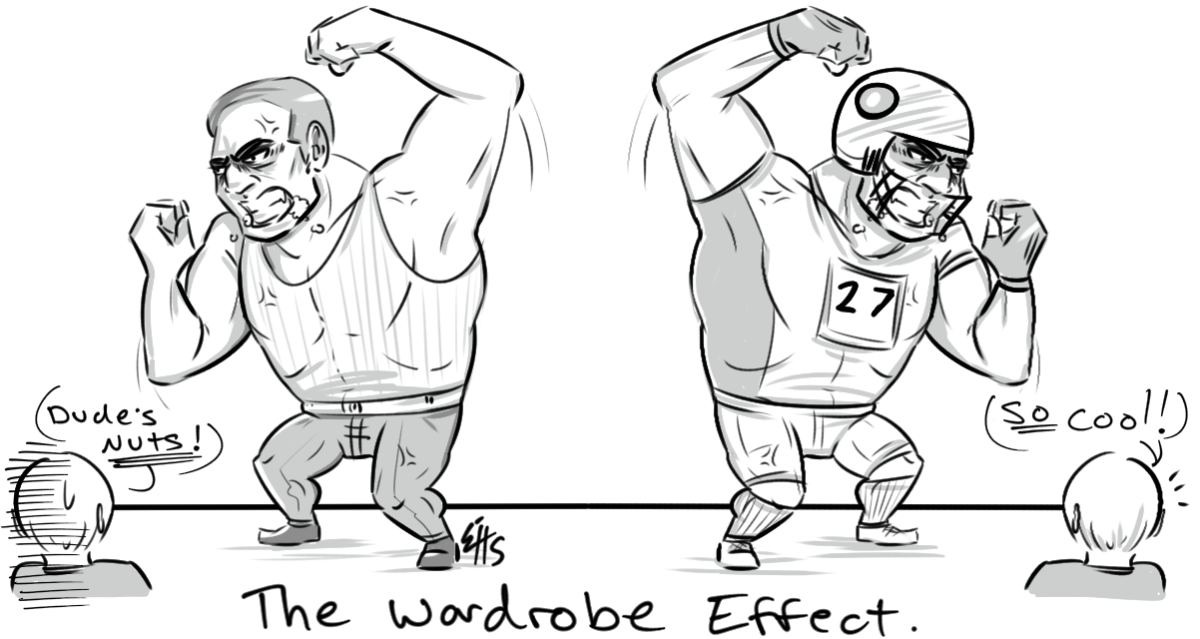Wednesday morning, Aaron Hernandez, an ex-NFL player, was convicted of first-degree murder. He was sentenced to life in prison. As an athlete, Hernandez had a $40 million contract in addition to what likely would have been a promising career.
Society makes excuses for athletes; in the same way it makes excuses for other groups of people who embody what the majority considers to be the default. It is similar to the way so many make excuses for white people asserting dominance over people of color, as well as for men upholding patriarchal standards; the majority acts to protect athletes because we imagine that they are like us. We direct sympathy to the wrong people as we pretend that given privilege takes no part in the formation of our identities.
That idea—that social privilege stems only from the decisions we have made as acting individuals—is dangerously false. However, the effects of sociological training can be easy to obscure. Take, for example, the various studies that have attempted to show that the violence committed by NFL players is, in fact, equal to, if not less than, that committed by the general population.
Comparing the statistics between merely the players and the overall population yields little to nothing. But, when these are extrapolated and compared to the relative income level and poverty rate of the players (top 1 percent and 0 percent, respectively), “the domestic violence arrest rate is downright extraordinary,” according to a column by Benjamin Morris.
Football is considerably archaic in nature, an art of carefully controlled violence and a methodical harvest of instilled aggression: the gladiators of the modern age. We’re too “ethical” to outright murder participants, but just uncivilized enough to allow concussion upon concussion to stack up.
It seems that as long as we can throw wads of money at these brutalized men, we find it acceptable to ignore any lasting effects, like potential irreversible physical damage or emotional dysfunction. Some may claim players know what they’re getting into upon starting. This could not be any less true in the face of how blatantly football players are glorified in American culture. The concept of slight injury is overwhelmed by the opportunity to be adored by millions.
Most news stories that pertain to NC State revolve around its involvement in sports—most often, football and men’s basketball. Though renowned for its academic programs, NC State gains most of its glory from wins in football games: football first, then engineering and research. My ten-year-old brother wants to attend NC State, not for the academics, but for the football. This isn’t uncommon.
Boys grow up aspiring toward violence as they are surrounded by glorifications of it, such as what they see in the NFL and WWE. These idealized forms of hyper masculinity propel children to emulate violent behaviors. It is not only acceptable to assume violent behavior in a controlled environment, it is encouraged. Yet, when these behaviors and attitudes eventually trickle into everyday life, we recite the patriarchy-affirming mantra, “Boys will be boys.”
As these men continue to murder, rape and abuse, they are simultaneously victims and perpetrators of an unhinged, toxic environment.
Erin Holloway is a senior studying anthropology and English















